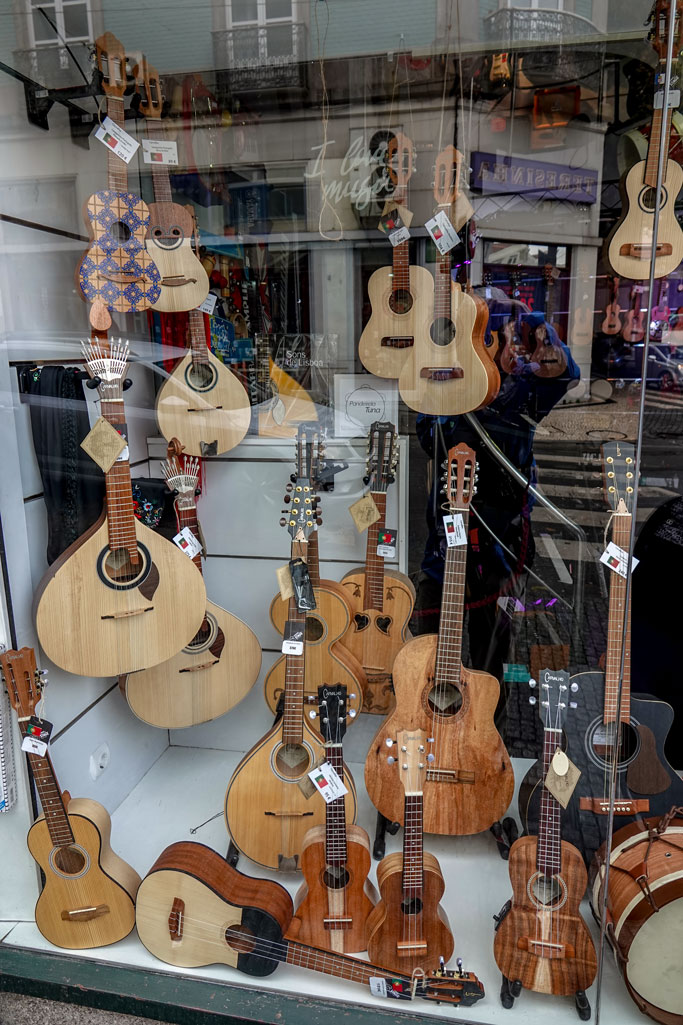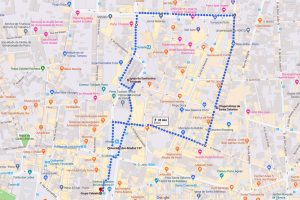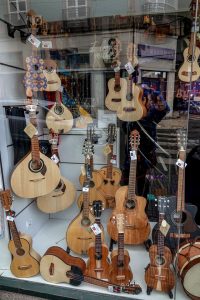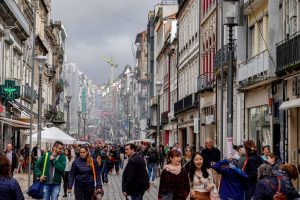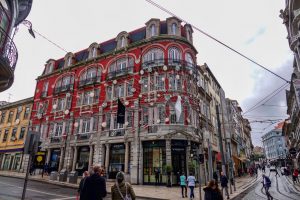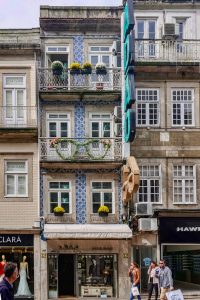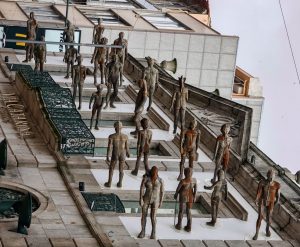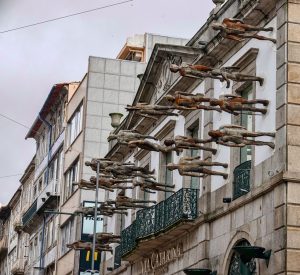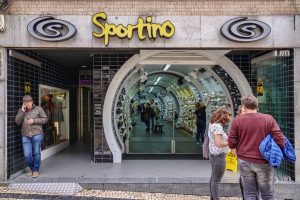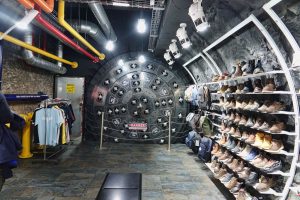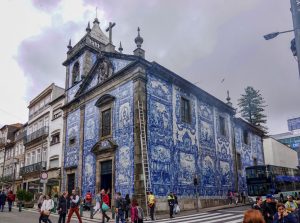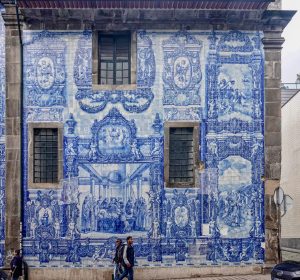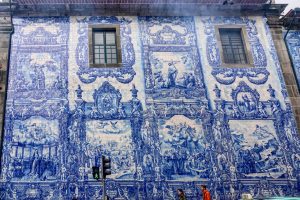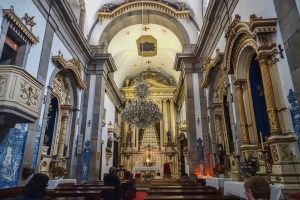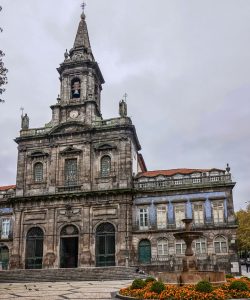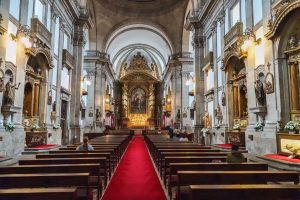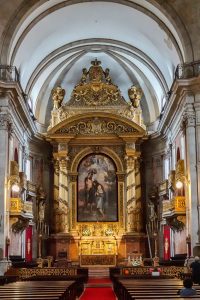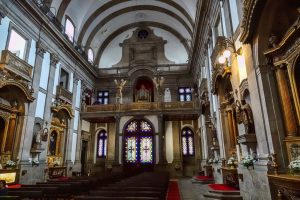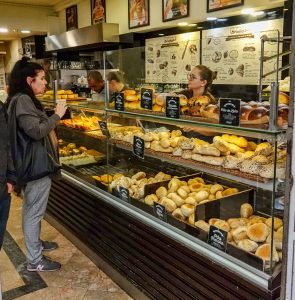TODAY’S TOURING
- Planned and coordinated the apartment checkout
- Planned the drive to the Lisbon Airport to return the rental car
- Scheduled a Lisbon Airport transfer to the apartment in Lisbon
- Coordinated with the Lisbon condo owner our arrival plans
Afterwards, we:
- Walked and shopped the Rua Santa Caterina
- Toured the Capela das Almas de Santa Catarina
- Explored the Sportino shoe store that looked like a tunnel, complete with drilling bit
- Toured the Igreja da Trindade
- Bought Pastries at Grupo Celeste
- We took our daily rest in the apartment and enjoyed coffee and pastries.
Dinner was at Costume Bistro. Another wonderful and inexpensive meal 🙂
Rua de Santa Catarina (Frommer’s)
Porto’s main shopping drag is a bustling 1.5km (almost 1 mile) long. Most of it is pedestrian-only and covered with artful black-and-white paving stones. Shopaholics can find almost anything along Santa Catarina or the side streets running off it. There are big-name European brands like Zara, H&M, or FNAC alongside venerable family stores selling everything from freshly baked bread to upmarket leather goods. Among the landmarks are the Majestic Café at No. 112 (www.cafemajestic.com; 22/200-38-87), the chicest place for a cimbalino (as the people of Porto call a shot of espresso) since 1921. It’s filled with gilt-framed mirrors, marble-topped tables, and smiling plasterwork cherubs, and serves divine rabanadas—Porto’s take on French toast. Continuing the old-world charm is the Grande Hotel do Porto at No. 197. There are two stylish Art Nouveau corner shops guarding the southern entrance to the street beneath the azulejo-clad Church of Saint Ildefonso, and a modern shopping mall with a colorful facade at No. 312. The greatest gem on the street, however, is the Capela das Almas, at No. 428, a tiny church covered with tiles with such an intensity of blue they rival the summer sky. The church is from the 18th century, but although painted in the baroque style of that time, the tiles were actually added in 1929.
The church completely occupies a whole block and the group of buildings was designed by the architect and military engineer Carlos Amarante in the first years of the 19th century, even though it may have been altered in 1818 by José Francisco. In stylistic terms, it is a neoclassical building with some features from the baroque tradition. Its building work was only completed at the beginning of the 20th century.
Inside the church, one should notice the technical quality of its decoration, particularly the marble work and the carved and gilded woodwork of the altarpieces, particularly that of the high altar produced by the architect José Marques da Silva.
